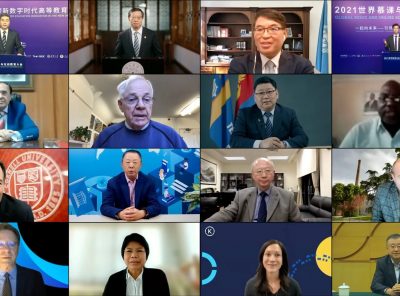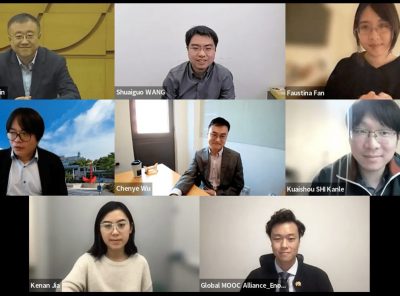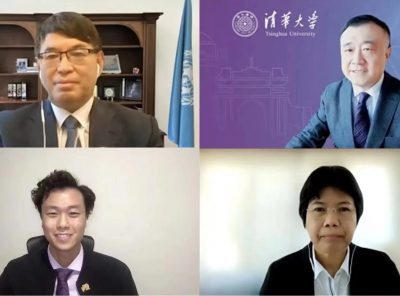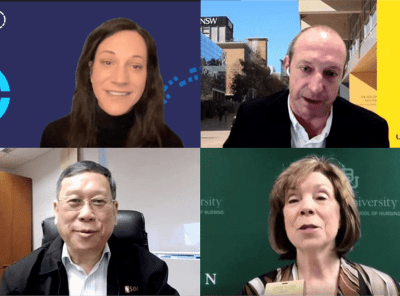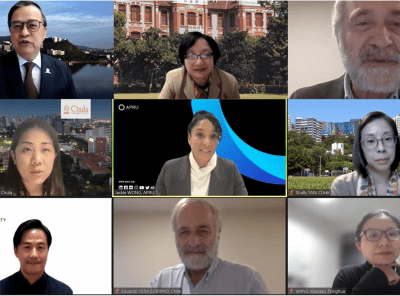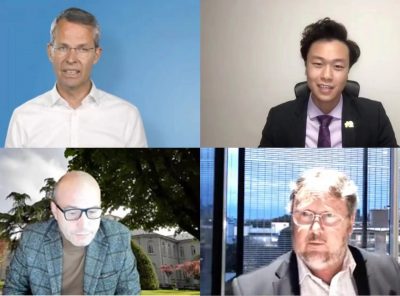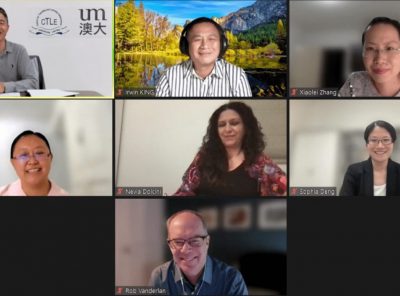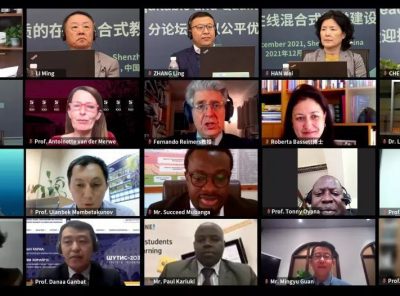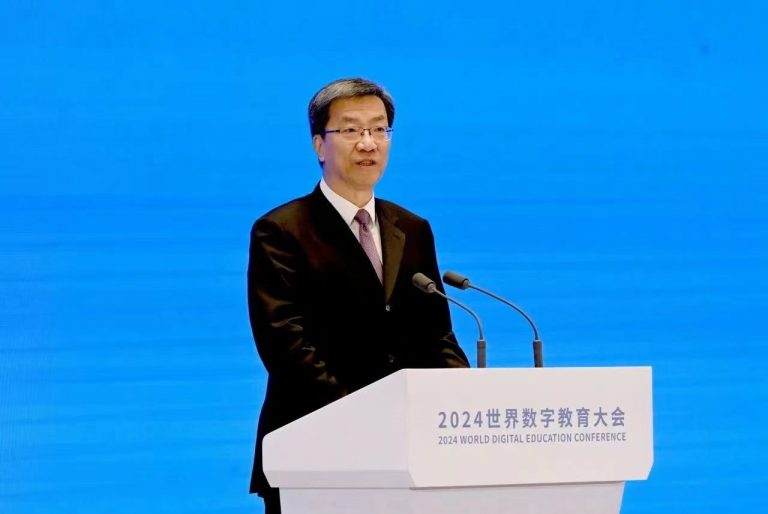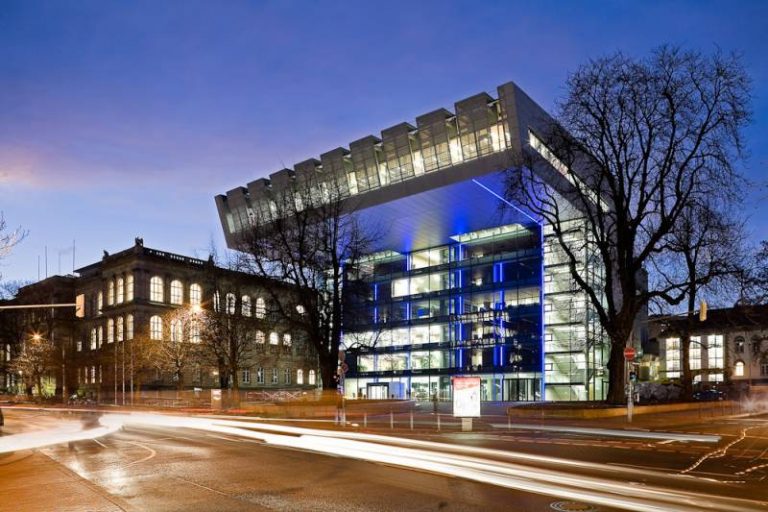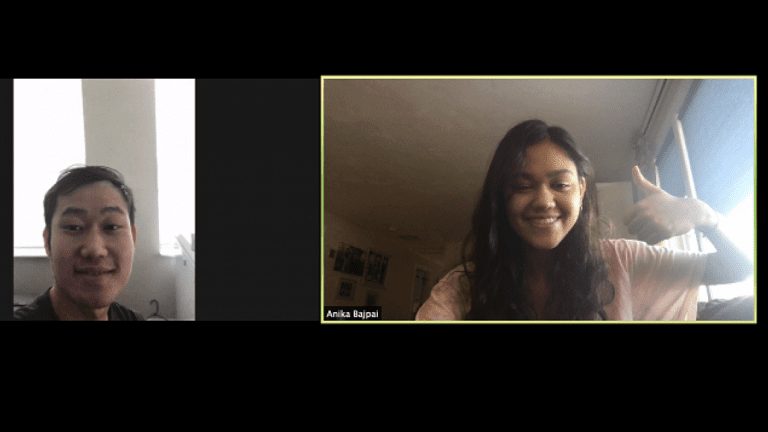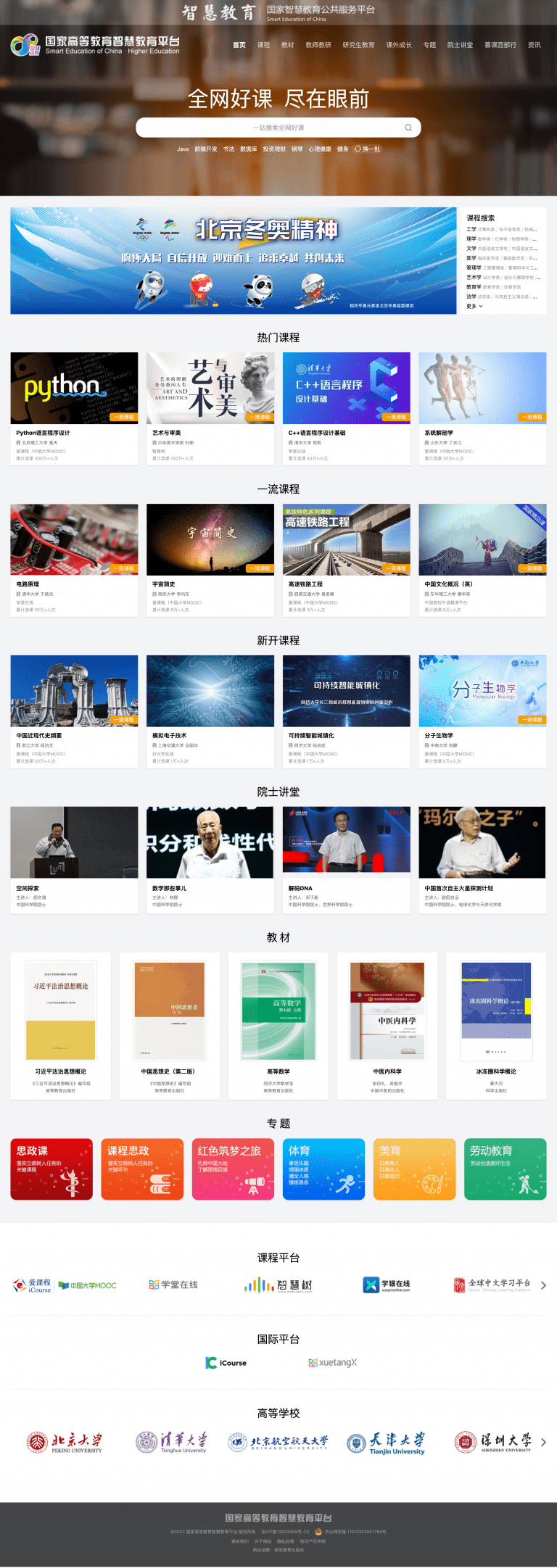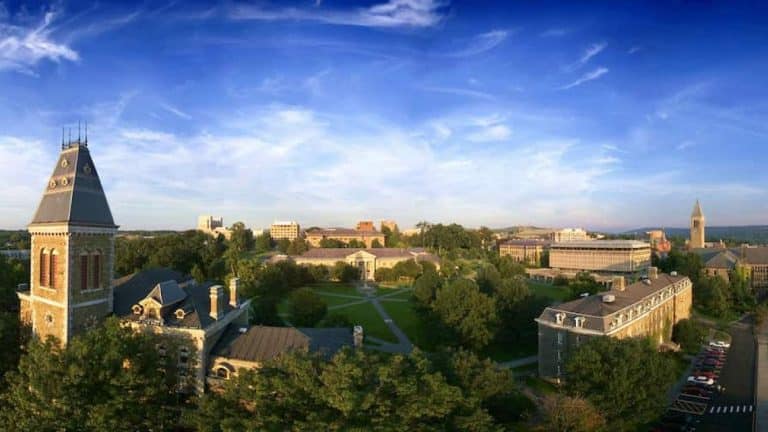On December 7, 2021, Sub-forum 3, under the theme of “Educating Future Scientists & Engineers”, of Global MOOC and Online Education Conference 2021 was successfully co-chaired by Politecnico di Milano (Italy), RWTH Aachen University (Germany), International Center for Engineering Education under the Auspices of UNESCO (ICEE), Global MOOC and Online Education Alliance and UNESCO Institute for Information Technologies in Education (UNESCO IITE).
This sub-forum explored how to support young scientists and engineers through cross-border bottom-up cooperation, share knowledge, experience, resources, and other valuable connections, as well as education models for developing the next generation of scientists and engineers. The replay of sub-forum 3 can be viewed in English and in Chinese on XuetangX.
Opening remarks


Giuliano Noci, Vice-Rector of Politecnico di Milano and Malte Brettel, Vice-Rector (Industry and Business Relations) of RWTH Aachen University gave opening remarks. Noci pointed out that the Global MOOC and Online Education Alliance made positive contributions to promoting global education innovation and education reform. He also said that amid the challenges brought by the COVID-19 pandemic to global universities, Politecnico di Milano attached great importance to the hybrid teaching model, with the goal of training innovative scientists and engineers, and actively exploring the integration of offline and online teaching models. Brettel said that the pandemic accelerated the digital transformation of higher education institutions. The integration of traditional teaching methods and digital technology is conducive to deeper and more flexible teaching. RWTH Aachen University is committed to applying virtual reality technology to online teaching platforms to help students enjoy more and better exchange opportunities and learning experiences. The University also introduced blockchain technology to enable credit certification among different universities.
Keynote speeches


In her keynote speech, Amal Kasry, Chief of Section for Capacity Building in Basic Science and Engineering (CB), Division of Science Policy and Capacity-Building (PCB), Natural Sciences Sector, UNESCO HQ said that scientists and engineers were the driving force of socio-economic and human development and one of the key factors to realize the United Nations’ 2030 Agenda for Sustainable Development. The United Nations actively promotes sustainable development education projects, provides STEM courses to underdeveloped regions, trains the next generation of scientists and engineers, and rises up to global challenges. Michael E. Auer, former Vice-Rector and Professor of Electrical Engineering, Carinthia University of Applied Sciences (Austria) said that in the context of the digital transformation of society and the rapid development of engineering disciplines, universities around the world should innovate engineering education models, support teachers in teaching technology and tools, carry out international exchanges, and promote the continuous transformation of engineering education.
Presentations by Deans of Engineering


During presentations and panel discussions, Stephen Foster, Dean of Engineering, University of New South Wales (UNSW Sydney) and Byoungho LEE, Dean, College of Engineering, Seoul National University shared their experiences in adjusting the teaching methods and evaluation systems of engineering disciplines, and the combination of online and offline teaching amid the pandemic. They both believe that the successful experience of online teaching can serve as a reference for offline teaching. The introduction of new technology applications, such as virtual reality, into the teaching system of engineering disciplines has provided teachers and students with a platform for practice and cooperation and exchange, conducive to improving the outcomes of teaching.
Enoch Wong, Assistant Secretary-General, Global MOOC and Online Education Alliance was the moderator of the session.
Noci gave closing remarks, where he expressed his heartfelt gratitude to the guests for sharing their teaching experience and insights in STEM. He said that digital technology could promote the interconnection of the global teaching system, enhance teaching participation and enthusiasm. Online and offline teaching complement each other in form and effect. Universities need to promote innovation in the content and forms of teaching and provide students with customized teaching experience.
The replay of sub-forum 3 can be viewed in English and in Chinese on XuetangX.

